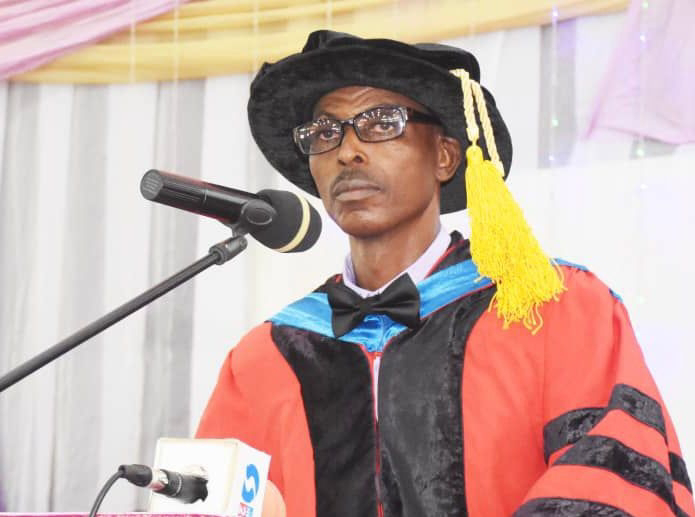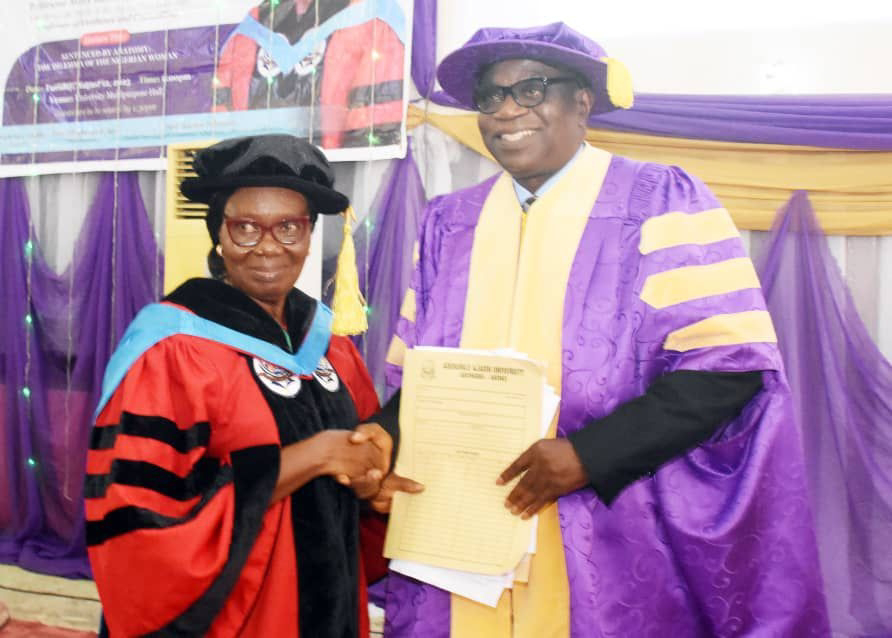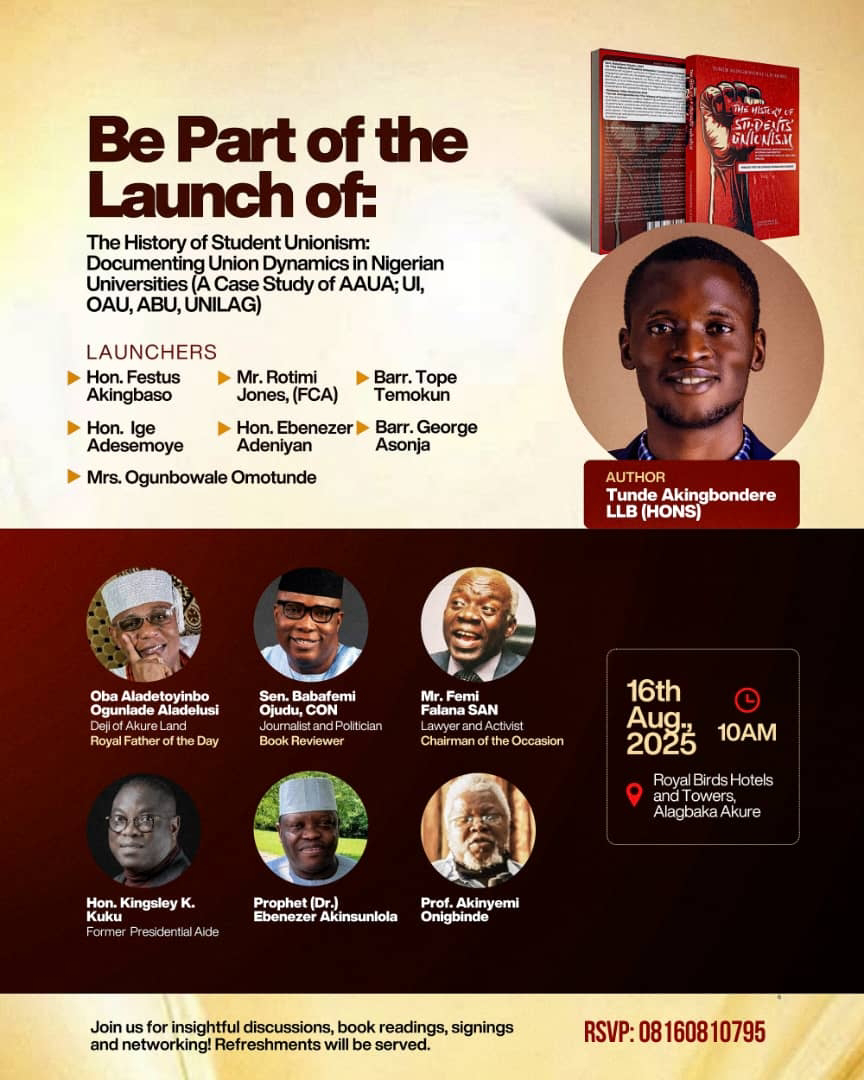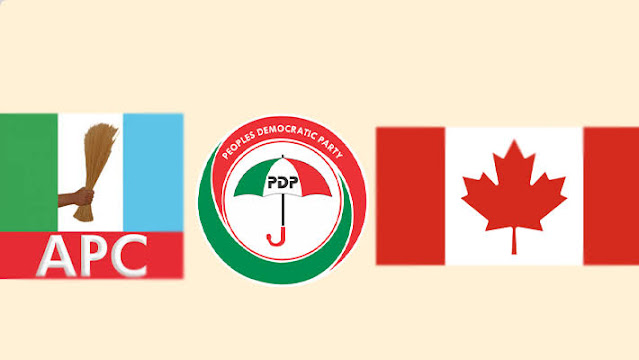Renowned education management expert, Prof. Akinrotimi Oyetakin, has expressed deep concern over the widening gap between the escalating costs of tertiary education and the declining financial support from government and stakeholders, warning that the imbalance poses a serious threat to the sustainability of Nigeria’s higher education system.
Delivering the 42nd Inaugural Lecture of Adekunle Ajasin University, Akungba Akoko, titled “Cost Explosion and Expenditure Implosion of Tertiary Education: Equilibrium Heresies in Motion,” Prof. Oyetakin described the current financial structure as dangerously unsustainable.
According to him, while investments in the education sector have continued, they remain insufficient to meet the complex financial demands of modern tertiary institutions.
He emphasized that quality education requires a shared financial responsibility grounded in the principles of fiscal fairness and the benefiter-pay system.
“There are no free meals anywhere in the world. Free education is not truly free. Someone, somewhere, bears the cost,” he stated. “Every stakeholder must contribute meaningfully to funding education.”
Explaining key concepts from his lecture, Prof. Oyetakin described “cost explosion” as the rapid and often unmanageable increase in expenses associated with running tertiary institutions, while “expenditure implosion” refers to shrinking budgetary support.
He argued that the disconnection between these forces has distorted the system, leading to what he termed “equilibrium heresies.”
To address the crisis, he recommended a comprehensive overhaul of Nigeria’s education funding model. Among his suggestions were increased internally generated revenue (IGR) through consultancy, research commercialization, and public-private investments.
He encouraged universities to develop creative profit-sharing models that motivate departments to pursue revenue generation actively.
He also proposed the establishment of the Education Emergency Relief Agency of Nigeria (EERAN) to address disruptions caused by insecurity and disasters, alongside the use of Artificial Intelligence (AI) for administrative functions and a public-private Adapt-a-School initiative to aid infrastructure development.
Prof. Oyetakin called for a minimum of 20 percent annual budgetary allocation to education at both federal and state levels and advocated for policies that compel graduates of tertiary institutions to contribute financially to their alma maters for infrastructural growth.
He argued that such contributions should be structured and policy-driven, moving beyond voluntary donations to a more consistent model of alumni support.
He criticized the unchecked proliferation of underperforming academic programmes and institutions, recommending their de-accreditation or restructuring to align with labour market demands.
He stressed the need to focus on courses with high economic value and comparative institutional advantage, noting that programmes with little to no economic return should be redesigned or scrapped altogether.
Furthermore, the professor cautioned against over-reliance on academic certificates and politicized screening systems, arguing that productivity should not be measured by credentials alone.
“Most developed countries are shifting away from credentialism because certificates don’t always equate to competence,” he said. “We must ensure our recruitment and promotion systems prioritize merit and capability over paper qualifications, especially when such credentials are sometimes obtained through unethical means.”
Prof. Oyetakin concluded by urging stakeholders to dismantle entrenched financial inefficiencies in the system and embrace a holistic, accountable funding framework.
“A flying bird (cost) versus a flying butterfly (funding) must be critically examined. Until we restore balance between education costs and funding, quality will remain out of reach,” he warned.
In his opening remarks, Vice Chancellor of the university, Prof. Olugbenga Ige, described the lecture as more than an academic exercise — calling it a timely and thought-provoking intervention that addresses the pressing realities of Nigeria’s education sector.
He commended Prof. Oyetakin for his dedication to scholarship, impactful research, and unwavering service to the university.
“The issues raised in this lecture resonate with our collective experience as university administrators,” Prof. Ige remarked. “We must rethink how we fund, manage, and deliver tertiary education in ways that are practical, innovative, and inclusive. This is not just an academic issue — it is a national concern.”
Prof. Ige also lauded Prof. Oyetakin for consistently blending theory with actionable solutions throughout his career, adding that the university remains committed to implementing viable recommendations that can enhance both academic standards and institutional sustainability.
The event drew a wide audience comprising academics, policy makers, students, alumni, and education stakeholders, many of whom described the lecture as a wake-up call to reposition Nigeria’s tertiary education system through shared responsibility and purposeful reform.
As Nigeria faces rising demands for access to quality education amid limited financial resources, Prof. Oyetakin’s message underscores the urgent need for collective, innovative, and equitable solutions to safeguard the future of higher education.









